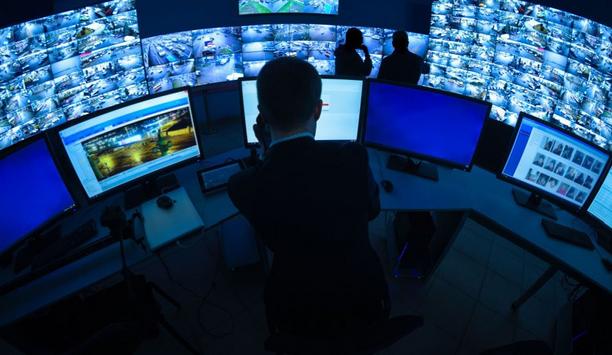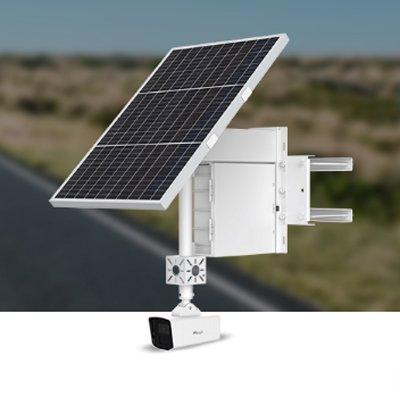Does it matter where a security system component is manufactured?
Editor Introduction
We live in a global market, and goods can easily be manufactured anywhere in the world and then shipped anywhere else. For many years, companies have taken advantage of the consequent flexibility to save costs and increase profits by manufacturing products around the world, especially in low-cost areas such as China. Historically, goods made in China (and some other locales) have been characterised as somehow lower in quality, and yet many of the top companies (such as Apple, for example) have managed to achieve superior quality of goods coming from Chinese factories, while keeping costs low. All of which suggests this week’s question for our panel: In 2015, does it really matter where a security system component is manufactured?
With modern industrial processes, it doesn’t really matter where security systems are manufactured – however, it is vital that the strictest quality control is vehemently adhered to. For example, countries such as China have long been viewed as important locations for manufacture of technology, but the sheer scale of production has sometimes put doubt on less-regulated plants. This can especially be the case with contractor operations, whereby it is easier for unregulated copying or even fake products to enter the market. However, a brand-owned factory is unlikely to suffer these problems because of strict manufacturing quality control and distribution procedures. On the flipside, we are finding that, within the security industry, a lot of manufacturing is returning to the U.K. and Europe. Since the financial crisis, with the growth of the Chinese currency along with a decrease in the British pound, our company has brought our manufacturing back to the U.K.
Most of the world’s manufacturing happens in Asia; it is a fact of life these days. Protection of intellectual property, design/trade secrets is very important, so are bilateral trade protection laws; and in the case of China, there are no such legal protections. Dealing with companies that reside in trading regions/countries is important if there are protections and legal remedies needed.
It does matter. Security system components should typically be purchased with criteria other than cost in mind. Look for companies that build their components “in-house” rather than outsourcing. Be critical of companies that are based in one country, yet outsource to another. Your project can suffer from improper product certifications if you are not careful. Some countries contain manufacturers with far more experience than others. The quality and reputation of these countries are obvious criteria to consider; however, lesser known points such as experience with world certifications, regulations and protocols are also of paramount importance. These are the factors that directly affect product reliability when it comes time to prove your purchase decision to your client.
On the hardware side, most components of security systems already are being made in Asia because of cost concerns. Some U.S. and European companies develop hardware designs and hand them over to contract manufacturers in Asia, while some source entire products and simply re-label or re-brand them. The software side is a little different. For both firmware and system software such as video management systems (VMS), there are definitely differences in quality and functionality. For the low- to mid-tier market, which isn't as demanding in terms of software functionality, products from all over the world are acceptable. For the mid- to high-end of the market, most suppliers are from the United States, Europe and Canada. A big concern is ethical sourcing. Companies should follow best practices when sourcing products from Asia and other low-cost countries, and should seek to comply with global standards on ethics, sustainability and environmental legislation.
Each country has quirks that could lead to component sourcing decisions. China is known for quality issues, particularly with precision components. Japan is known for long lead times and being very inflexible to customisation. Far East-designed software tends to have cruder user interfaces than United States-designed software. We are now a truly global economy, and the country of origin is becoming less important overall (except for the above instances). Additionally, many companies are global manufacturers, so a computer chip ordered from Intel (based in Santa Ana, Calif.) may actually be completely designed, manufactured and shipped from Taiwan. Also, many overseas companies have extensive manufacturing facilities in the United States. Another important factor is component cost, on which currency valuation has a potentially large effect. The U.S. dollar is currently at a historic high versus global currencies, so components manufactured in the United States come at a significant premium.
It does matter where security components are manufactured, for reasons that are specific to each country:
China: This country has completely invented its own regulatory environment, so be very cautious. China is non-Western, non-democratic and subject to heavy government involvement, formally and informally. Expect viruses (detected or undetected), IP theft, cameras with “funny” firmware, etc.
Korea: Similar to China in many ways. Same intention, same means, and similar technological and engineering knowledge. Be cautious of commercial espionage and theft.
Japan: This country is generally safe, but should be approached with caution.
United States: Safer, but NSA, CIA, FBI, ITAR and more freely wave the “homeland security” flag, and they are not as innocent as they claim. Israel: Safest. Israel has had a strong culture of individualism and a focus on the interests of international customers for extended length of time. This is a result of an almost non-existent local market.
Editor Summary
Location of the factory is just one variable related to the quality of technology goods, and like any other variable, it is one that must be managed. With proper quality standards and oversight, goods made in China – or any place else in the world – can achieve acceptable (even superior) quality levels. Even so, our panelists point out specific advantages of sourcing goods to various geographic areas. They have done a thorough job of explaining the reality of the situation, and yet sometimes perception by customers (however uninformed or unjustified) can also be a factor. Here are additional questions to ponder: Does a perception of lower quality still plague goods made in China? Do end users or integrators favor goods “Made in the USA?” The reality is one thing, but perceptions still matter, too. Or do they?
- Related companies
- TDSi
- Network Video Technologies
- VIZpin Inc.
- Oncam
- Delta Scientific Corporation
- ISCON Imaging
- View all news from
- TDSi
- Network Video Technologies
- VIZpin Inc.
- Oncam
- Delta Scientific Corporation
- ISCON Imaging
Expert commentary
- Mind the gap: Addressing cybersecurity at every phase of technology management
- When choosing an access solution, make total cost of ownership a key part of the calculation
- How Californian cities are improving surveillance and security - key developments from 2022 to 2024
- Healing through innovation: Securing healthcare in the cloud
Security beat
Security bytes
- Getting to know Dan Grimm, VP and General Manager of Computer Vision at RealNetworks
- Big wins and the importance of showing up: Insights from SourceSecurity.com editor Larry Anderson
- Setting goals, business travels and radioactivity: Success secrets from Tiandy's John van den Elzen
- Getting to know Jeff Burgess, President/CEO at BCDVideo
Palm vein recognition
DownloadThe key to unlocking K12 school safety grants
DownloadSelecting the right network video recorder (NVR) for any vertical market
DownloadPhysical access control
DownloadCybersecurity for enterprise: The essential guide to protecting your business
DownloadASSA ABLOY Aperio Wireless Locks
Hikvision EasyIP 4.0 Plus Network Cameras with ColorVu 3.0 Technology
Milesight 4G Solar-Powered AI-Driven ANPR Camera Kit





















